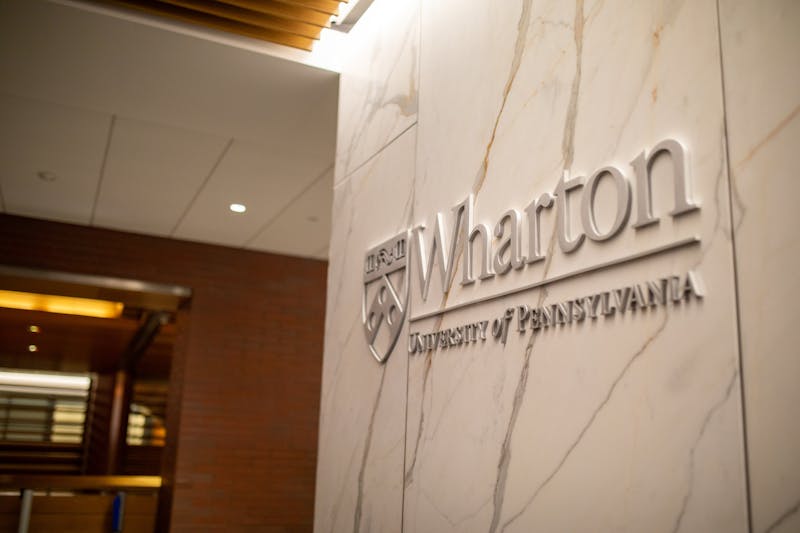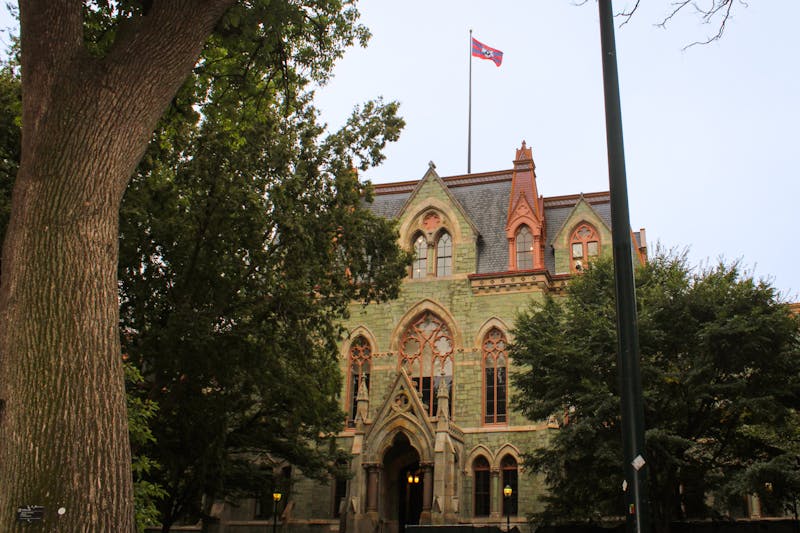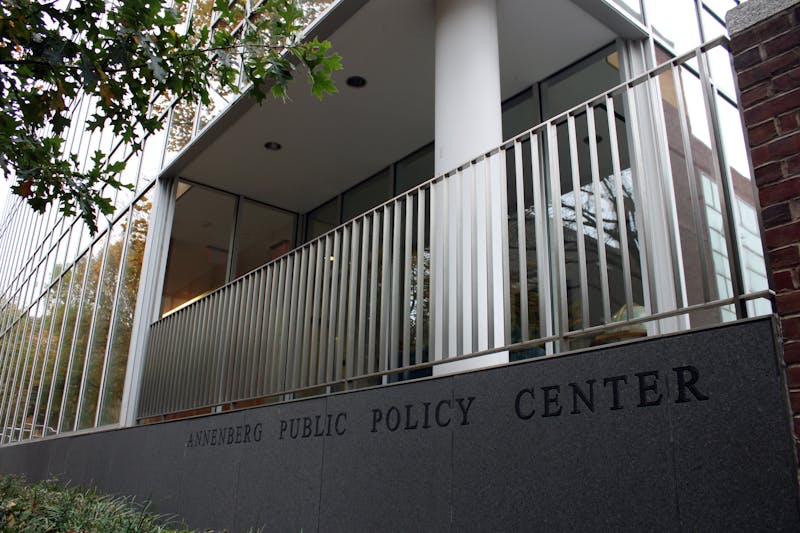
The annual Energy Week took place from Feb. 10 to Feb. 14.
Credit: Chenyao LiuThe Kleinman Center for Energy Policy and the Vagelos Institute for Energy Science and Technology hosted the fifth annual Energy Week from Feb. 10 to Feb. 14, bringing together students, faculty, and experts for panels, workshops, and discussions on the future of energy and sustainability.
Since its inception in 2019, Energy Week at Penn has aimed to foster dialogue on energy-related research and pressing global issues. This year’s programming featured a range of events, from panels on conservative approaches to energy policy to an on-campus e-waste drive encouraging students and faculty to recycle old electronics.
These events were organized in collaboration with various Penn centers and schools, including new partners such as the Penn Museum and Penn’s Common Press. Cornelia Colijn, executive director of the Kleinman Center for Energy Policy, emphasized the growing importance of this year’s Energy Week.
“The challenge of climate change is incredibly complex, requiring interdisciplinary solutions informed by those working on the frontlines of progress,” Colijn said. “Energy Week is not just about a single discipline or program at Penn — it’s about bringing together people from diverse backgrounds to teach and learn from each other.”
Colijn emphasized that the event’s growth reflects the increasing urgency of the climate crisis. Many sessions throughout the week saw high attendance, with some reaching standing-room capacity.
“It’s a testament to the enormous appetite our community has for participating in these conversations,” she said.
One of these keynote events was the Joseph Bordogna Forum, featuring former United States Deputy Secretary of Energy David Turk and Penn Engineering Vice Dean of Innovation and Entrepreneurship Vanessa Chan. Their discussion focused on the intersection of energy, technology, and society, particularly the role of universities in advancing clean energy transitions.
Chan, who also moderated a panel with Biden-Harris administration officials on clean energy investments in the private sector, emphasized the impact of federal policies such as the Bipartisan Infrastructure Law and the Inflation Reduction Act. These policies have injected significant funding into clean energy efforts, spurring commercialization and technological development.
“We now have a lot of money — over half a trillion dollars — going towards demonstration deployment,” Chan said.
Yet, while technological innovation is crucial, Chan pointed out that the real challenge lies beyond simply developing new technologies.
“Only part of commercialization is about getting the technology to work,” she added. “The other part is overcoming barriers like cost, regulations, workforce, and supply chain.”
Chan emphasized how this year’s Energy Week highlighted the necessity of interdisciplinary collaboration in clean energy innovation, as clean energy solutions cannot emerge from any one discipline alone.
“The hardest thing right now is getting the entire ecosystem aligned. There’s not one organization or one company that can commercialize a technology on its own — it’s about bringing together business, government policy, technology, and academia,” Chan explained.
Third-year chemistry Ph.D. student and finalist in the Energy Week Lightning Talks Mayesha Ahmed echoed this sentiment, highlighting Energy Week’s ability to unite perspectives from across Penn’s schools and programs.
“Energy Week is one of my favorite things, because it’s so interdisciplinary and it’s about thinking about energy from all the different schools and all the different expertise,” Ahmed said.
During the Lightning Talks, Ahmed explained the intersection of energy technology and policy, specifically highlighting the issue of the communication gap between scientists and policymakers.
“Scientists and policymakers often think in very niche circles,” Ahmed said. “If I have the best technology, does that necessarily mean it will lead to the desired outcomes without the right policy in place?”
Both Chan and Colijn stressed the importance of real-world engagement for students who want to get involved as part of the solution.
“Students need to spend more time outside the classroom and really learn and understand what’s going on in the real world,” Chan said. “For those who attended Energy Week, I applaud them for wanting to learn what’s going on. For those who are too focused on exams or homework, you need to make time for these things — you’re doing yourself a disservice otherwise.”
Looking ahead, Colijn envisions continued growth for Energy Week, with hopes of involving even more diverse groups and expanding the conversation on energy transition.
“I hope to see new groups joining for the first time — finding new ways of incorporating their interests and expertise into the fabric of our collective work on the energy transition,” Colijn said. “Our campus is full of people continuing to work on furthering the energy transition, and members of our broader Philadelphia community are seeking out places where scholarship and action can come together to make change.”
The Daily Pennsylvanian is an independent, student-run newspaper. Please consider making a donation to support the coverage that shapes the University. Your generosity ensures a future of strong journalism at Penn.
Donate












